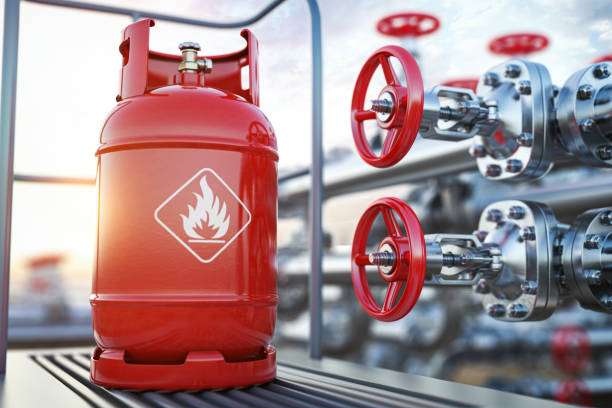The Chamber of Oil Marketing Companies (COMAC) has expressed strong opposition to any policy that could potentially harm local businesses operating within Ghana’s downstream petroleum sector.
The warning is directed at the Cylinder Recirculation Model (CRM), a liquefied petroleum gas (LPG) marketing system that was introduced under the previous administration but failed to yield the expected benefits for local industry players.
The opposition by COMAC stems from concerns that the CRM, as initially structured, posed a significant threat to existing businesses in the sector.
Gabriel Kumi, Chairman of the Chamber’s Board, reaffirmed COMAC’s commitment to defending local investments and preserving jobs within the industry.
“A new government has just taken office, and the National Petroleum Authority (NPA) has a new Chief Executive Officer. With a new minister in place, there has been no clear push on CRM yet.
“Based on past actions, we had to strongly defend our investments and the over 12,000 Ghanaians we employ.”
Gabriel Kumi, Chairman of the Chamber’s Board
He emphasized that while COMAC acknowledges the government’s authority to implement policies aimed at enhancing the energy sector, such policies should not be structured in ways that negatively impact businesses that have made substantial investments in the industry.

“We are still waiting to meet with the political leaders at NPA to understand the direction of CRM.”
Gabriel Kumi, Chairman of the Chamber’s Board
In 2024, the NPA reaffirmed its commitment to implementing the CRM, aiming to transition the country’s LPG distribution system to a model that aligns with international safety standards.
The plan was initially set in motion in response to concerns about unsafe refilling practices, which had led to numerous gas explosions over the years.
Despite these safety considerations, COMAC has consistently voiced concerns about the potential economic consequences of CRM on local businesses, particularly small-scale LPG retailers and refill station operators who could be pushed out of business under the new system.
Potential Impact on Local Industry Players

The implementation of the CRM has raised fears among stakeholders that major multinational corporations could dominate the LPG distribution sector, leaving local companies struggling to compete.
Many oil marketing companies and independent gas station operators argue that the model could disrupt the market by centralizing control over LPG distribution in the hands of a few large companies, potentially leading to job losses and reduced revenue for small businesses.
“Many local investors have put millions of Ghana cedis into building their LPG retail infrastructure.
“If the government forces us to shut down these operations in favor of a centralized system controlled by a few companies, we are not only losing our investments but also putting thousands of workers out of jobs.”
Gabriel Kumi, Chairman of the Chamber’s Board
COMAC has called for an open dialogue with the government and the NPA to ensure that the policy does not lead to unfair competition that favors foreign or larger corporate entities at the expense of local businesses.
The government and the NPA have defended the CRM as a necessary step to improve safety in the handling of LPG.
Ghana has experienced several deadly gas explosions over the years, prompting calls for stricter regulations on how LPG is stored, transported, and sold. The CRM was seen as a means to minimize human error and reduce the likelihood of such accidents occurring at gas refilling stations.
However, COMAC and other stakeholders argue that improving safety standards should not come at the cost of local business survival. They insist that existing gas stations can be upgraded and equipped with better safety mechanisms rather than being rendered obsolete under the CRM system.
“There are ways to improve safety without completely overhauling the system in a way that disadvantages local businesses.
“Investments in better safety protocols, equipment, and training can achieve the same goal without displacing businesses that have been serving Ghanaians for years.”
Gabriel Kumi, Chairman of the Chamber’s Board
The Chamber of Oil Marketing Companies’ stance against the Cylinder Recirculation Model highlights the ongoing debate between economic sustainability and safety reforms in Ghana’s LPG industry.
While the government views the CRM as a necessary step to enhance safety, industry players fear that its implementation could negatively impact local businesses and lead to job losses.
As consultations continue, stakeholders hope for a policy that balances both safety and economic considerations to ensure a fair and competitive LPG distribution market in Ghana.



















